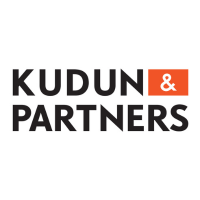

Senior legal manager | Dusit Thani








Kamonthast Chaorujiroj
Senior legal manager | Dusit Thani
What are the most significant cases aor transactions that your legal team has recently been involved in?
Dusit Legal Team assisted Dusit Foods in signing a joint venture agreement with Farm to Plate Processor to incorporate a newly set up joint venture company to operate packaged food ingredients, ready-to-eat and ready-to-cook foods and foods manufacturing via the central kitchen and cloud dispensing network in Thailand.
Dusit Legal Team also assisted Dusit International in hotel management projects in Thailand and outside Thailand.
Could you share an example of a time when you came up with an innovation that improved how your legal team works and did not come at a large expense?
I identified repetitive and time-consuming tasks that can be automated, such as some routine business agreements. We are exploring the use of templates alongside user-friendly contract management software that can be used to streamline our contract drafting process, which can be obtained and implemented at a reasonable cost.
We are also exploring workflow tools for team members’ use in legal operations — communications, approval process, centralised storage, version control, and collaborative editing of contracts in real-time which saves a lot of time and effort.
How do you suggest in-house lawyers build strong relationships with business partners?
Be proactive: Take the initiative to reach out and establish connections with key stakeholders by attending meetings, company events, and social to interact with colleagues from different departments. Also, at the same time, try to gain a deep understanding of the organisation’s operations, goals, and challenges. We should provide tailored legal advice to be concise and fit the business objectives.
Offer practical solutions: While it is crucial to identify legal risks, providing practical and viable solutions that align with the organisation’s objectives and balance legal compliance with business needs while still upholding ethical standards and being transparent about legal considerations are also important.
Open communication: Maintain regular and open lines of communication with business partners. Be accessible, responsive, and approachable when they seek legal guidance. Actively listen to their concerns.
Improvement: Regularly seek feedback from your business partners on your performance and how to better support their needs. Act on constructive criticism and continuously improve your services.
Head of legal, compliance and risk management APAC | Limagrain Thailand
Head of legal compliance and risk management (APAC) | LIMAGRAIN Thailand
Head of legal compliance and risk management APAC | Limagrain